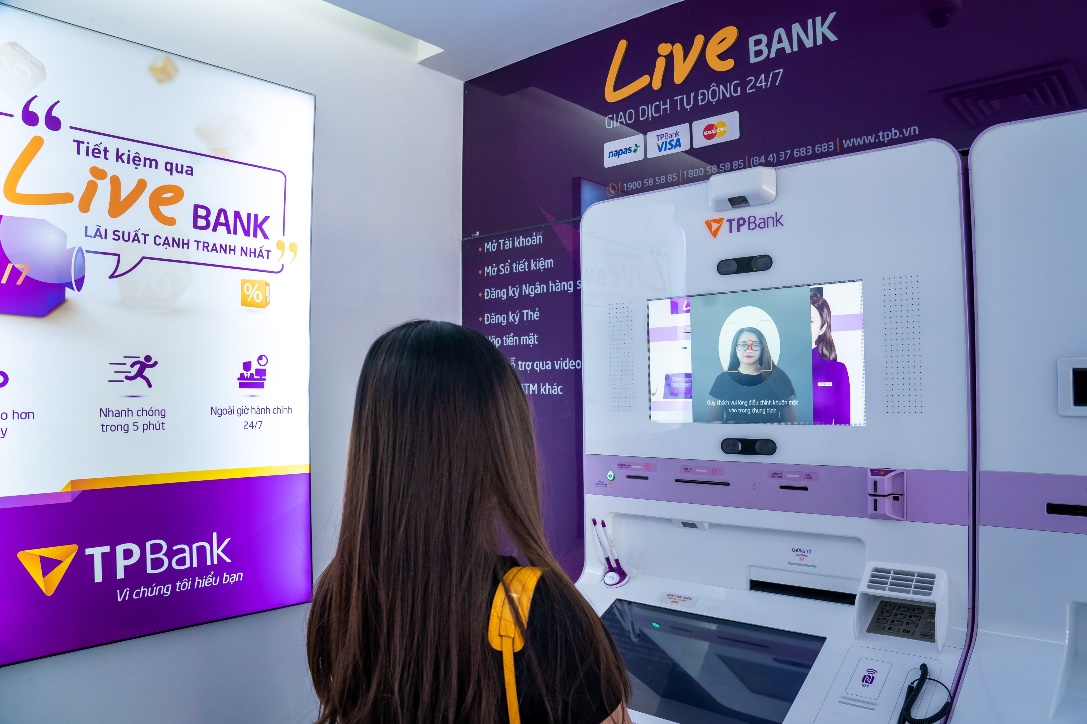How was digitalization done in the banking sector?
The year 2021 is a key milestone for the banking sector when it comes to digitalization progress.

TPBank is one of Vietnam commercial banks to speed up its digitalization
We have enjoyed some favorable conditions to grow. These include a young, tech-savvy population that drives demand for fintech solutions which are set to mushroom with good digital infrastructure including almost full 3G/4G network coverage and a high number of smartphone users. McKinsey’s Personal Financial Services 2021 survey on the digital banking behavior of some 20,000 urban bank customers in 15 Asia-Pacific markets, including Vietnam, found the proportion of Vietnamese customers using digital banking tools at least once a month doubled between 2017 and 2021, from 41% to 82%.
The penetration rate of fintech and e-wallets in Vietnam increased from 16% in 2017 to 56% in 2021. Besides, according to Ernst & Young, 42% of Vietnamese banks are ready for the digital transformation process, while 28% have incorporated a digitalization strategy into their business.
The Government is also proactive to support digitalization in the banking sector. In May, SBV issued Decision No. 810/QD-NHNN on a digital transformation plan to 2025 and a vision towards 2030, as a guideline for the banking sector to implement digital transformation as a priority task. Some ambitions by 2030 for Vietnam include at least 70% of its banking operations will be fully performed digitally by customers. A recent survey by SBV found that 95% of credit institutions in Vietnam are to have either implemented digital transformation strategies or be in the process of formulating them.
What makes 2021 important is that the Covid-19 has been a catalyst that helps Vietnam accelerate the digitalization of the economy in general and the banking sector in particular. Pre-Covid, the digital acceptance level in Vietnam is pretty low as there is no compelling reason for the customers to sign up for internet banking when everyone is comfortable with paper-based instructions with wet signatures. When the first lockdown happened in April 2020, people realized the importance of internet banking and other online services. Approximately 85% of consumers use e-commerce apps on smartphones to shop for goods and services at least once a week, and 44% of shoppers have purchased goods and services on social channels since the pandemic began according to Ernst & Young.
At HSBC Vietnam, Mr.Tim Evans, CEO of HSBC Vietnam saw a huge jump in our internet banking usage for its trade business volume and continued to see a fast-growing demand for all its other digital platform that allows its customer to perform all their transactions. The silver lining on COVID-19 is that it has accelerated the acceptance and adoption of digital banking. What is required now is for the regulatory framework to evolve more rapidly to support the digitalization journey.
“From our observation, many banks in Vietnam have accelerated their digital agenda by digitizing their internal processes like real-time trading systems and front-end channels like eKYC, QR code payment, etc. Some of them have already put such new technologies as big data, open API, blockchains or AI in their pipeline”, Mr.Tim Evans said.
Such positive momentum should be maintained in 2022 as the demands of customers never stop evolving and Covid-19 is still out there. It is important for every bank to continue investing in digital banking to keep up with customers’ needs and behavior. On the other hand, there is also a need to help some people who are still apprehensive in embracing the change and concerns over cybersecurity. 71% of Vietnamese bank customers are open to purchasing banking products and services through digital channels, but only 23% have actually completed a purchase of a bank product online or through its mobile app according to McKinsey. Mindset change is not easy, but we need to address their concerns and highlight how it will assist them as they start their journey of transformation, especially in this time of the pandemic.
Moving forward, many experts believe that digital transformation will be the key driver for economic recovery and development. In this context, the banking sector will have a significant role to play to contribute to Vietnam’s e-economic growth.








